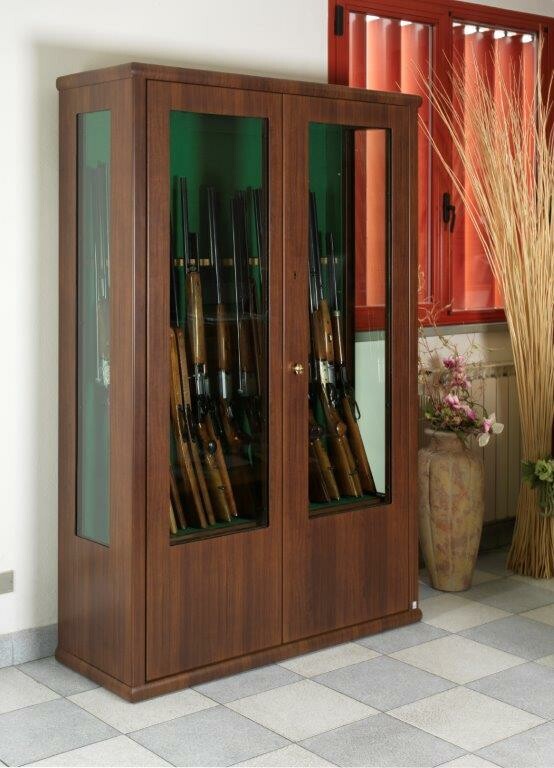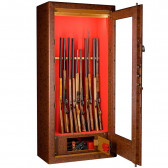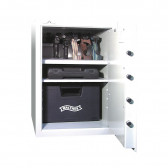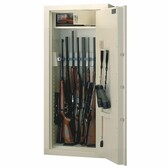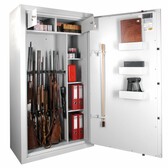Primarily because these are the requirements of the Arms and Ammunition Act. So how do you store your weapons properly, what are the requirements of the 2014 Regulations and what is the gun storage control?
How should weapons be stored?
First of all, in such a way that unauthorised persons do not have access to it (cf. Article 32 of the Weapons and Ammunition Act). This means that the weapon should be kept under lock and only a person who is authorised to do so should have access to the place of storage and the possibility of actually removing the weapon. If the safe has an electronic lock, the code to it should be known only to the authorised gun owner. It is worth remembering that if the safe is protected by a key, access to it should also be restricted (the key cannot lie freely next to the safe or in a publicly accessible box). It is best to attach it to your everyday keys or wallet. In the event of a weapons storage check, the police may ask how the key is stored. If the officers deduce from our answer that the wife, neighbour or child may have access to it, they will consider the weapon to be improperly stored.
Can I use any safe for storing weapons?
The Regulation of the Minister of the Interior of 26. August 2014 specifies where weapons must be stored. It is a weapon store or a device that meets the requirements of at least class S1 according to the PN-EN 14450 standard.
It is therefore not a moral decision as to whether one should keep a weapon in a safe, but a hard requirement of the law. Interestingly, the Act does not specify where the safe is to be placed – so you can have one in your home, office, as well as on your allotment or even at a friend's house. Also, the safe does not have to be fixed to the ground or to the structural elements of the building (although of course, for safety reasons, it is worth taking care to fix the gun safe to the structural elements, especially if its weight does not exceed 200 kg. A gun safe must also have a clear certification – e.g. in the form of a rating plate confirming that the safe is of S1 class (or higher).
Rules for keeping weapons and ammunition in a safe
Firearms must be stored unloaded in a magazine or safe, and the storage conditions must comply with the manufacturer's requirements. Ammunition must be stored in boxes or containers in such a way that the primer of the cartridge cannot be struck (not in magazines!), and no regulation specifies an ammunition limit. Whether or not cartridges have to be kept in a safe is a contentious issue. On the one hand, par. 3 para. 3 of the 2014 Ordinance speaks only of the rules cited above, while at the same time para. 5. of the same ordinance states that "Persons in possession of weapons and ammunition on the basis of a permit referred to in Article 10(4) of the Act shall store weapons and ammunition in devices meeting the requirements of at least class S1 according to standard PN-EN 14450". In principle, however, it is safer to keep ammunition in a safe. A good solution here would be, for example, to store the ammunition in a secure container in a separate, internal safe. By placing it in a different place from the gun, the safety of both yourself and the gun owner's family is significantly increased.
Find out more about this in the article: New gun cabinet in compliance with the ordinance of the Minister of Interior
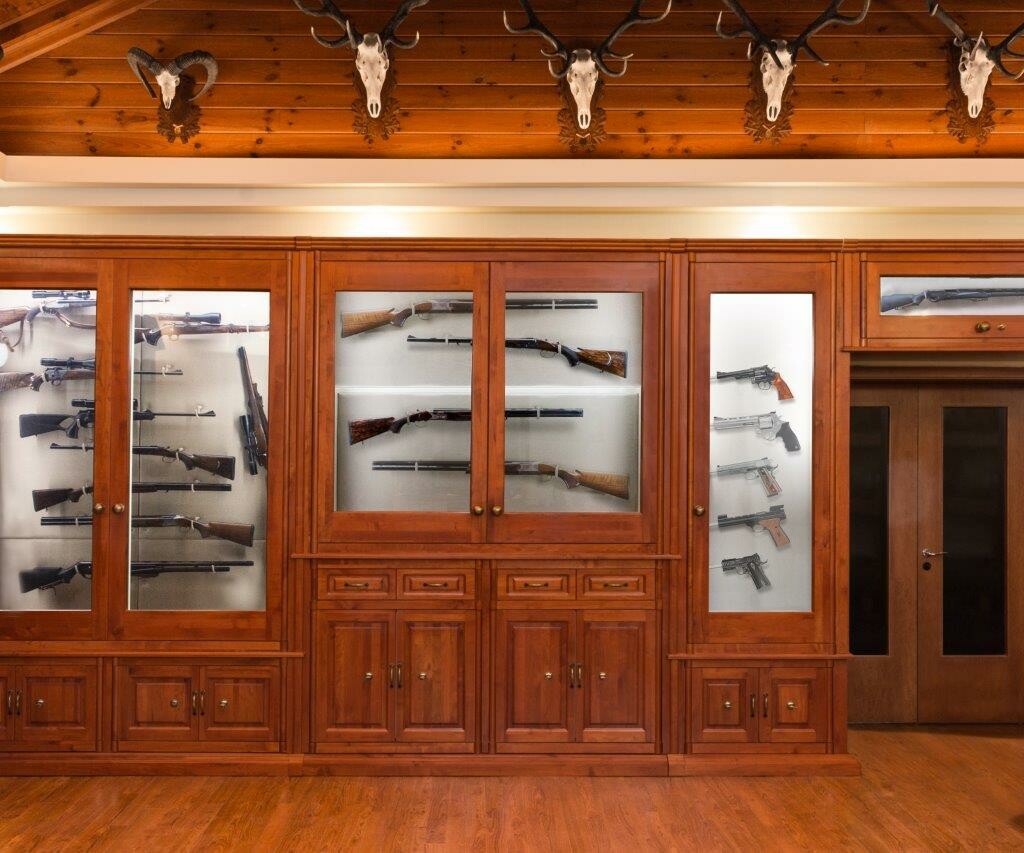
Gun storage control – who, when, how?
Whether you are storing your weapons in accordance with the law may be checked by the police (and other military authorities - in accordance with Article 27(1) of the Weapons and Ammunition Act). Such intensive action to control the storage of weapons was, for example, carried out before World Youth Day throughout the Małopolska Province.
The storage of weapons in accordance with the provisions of the Act is important, because under Article 17 pt 1, the police may refuse to issue a weapon permit (or revoke it) to a person who violated the rules on weapon storage. Although there are no separate provisions specifying the manner in which a weapons storage inspection is to be carried out, it is worth remembering that once the inspection has been completed the authority which carries it out must draw up a protocol. In the event of any ambiguity, you can disagree with it and appeal to the competent authority.
We recommend to read, too: 5 factors to consider when choosing a gun safe
Armoured glass cabinets – more than just storing weapons

